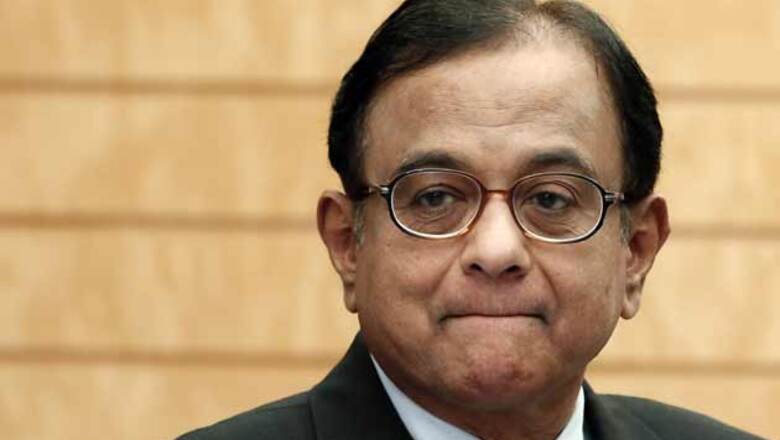
views
New Delhi: Finance Minister P Chidambaram will seek to drum up foreign investment from the United States and Canada this week to fund a record high current account deficit, even as policymakers debate the risks of over-reliance on foreign investors to finance the gap. As Chidambaram kicks off a week-long North America trip, his officials are working on a series of steps to attract at least $20 billion in new investment to fund the deficit without depleting India's $300 billion in foreign exchange reserves.
The proposals include raising the cap on foreign investment in rupee-denominated government debt by up to $5 billion, reducing tax rates on such investments, making it easier for Indian firms to borrow abroad, and easing curbs on foreign investment in sensitive sectors such as defence, telecoms and media, finance and trade officials said.
The measures are still being formulated and have not been approved, the officials stressed. Chidambaram, aiming to take advantage of a wave of cheap global funds, will meet foreign investors in New York, Ottawa and Toronto, the latest stops in a global roadshow to talk up India as an investment destination.
The new push for foreign investment is seen as part of an important but potentially risky shift in how India approaches its widening current account deficit, which has emerged as the government's biggest economic worry. "We will take all steps to ensure that inflows remain strong for the next two years," Prime Minister Manmohan Singh told a gathering of industrialists in New Delhi earlier in April.
The new push for foreign investment stems from India's struggle to boost its merchandise exports in a fragile global economy and rein in a high import bill. The government is now willing to tolerate a current account deficit of 5 per cent, roughly double what it has typically aimed for, the finance ministry officials said.
India's current account deficit widened to an all-time high of 6.7 per cent of GDP in October-December, driven by heavy oil and gold imports and muted exports. India's failure to attract sufficient capital inflows precipitated a balance of payment crisis in 1991, when the Reserve Bank of India (RBI) was forced to airlift 47 tonnes of gold to Europe as collateral for a loan to avert a sovereign default.
"The size of the deficit in itself is not a problem, if you can comfortably finance it," said an official familiar with the funding proposals being considered by the government. Officials concede the strategy will make India far more dependent on foreign investors, exposing it to sudden reversals in capital flows, which could trigger a financial crisis.
"But we do not have really too much of a choice other than relying on portfolio inflows," said Jyotinder Kaur, an economist at HDFC Bank. Aninda Mitra, India economist at Capital Economics in Singapore, said much will depend on the global environment and the success of the government's economic reform drive.
"Capital inflows will depend on the risk-seeking behaviour of global investors as well as the policies of the major central banks," he said. "Sentiment about India and the future of reforms will also determine the direction of short-term flows."
India currently allows $76 billion of foreign investment in sovereign as well as corporate debt. The finance ministry officials said one of the proposals under consideration would address a long-standing demand of foreign institutional investors to reduce the withholding tax on all rupee-denominated bonds to 5 per cent from 20 per cent. A decision was likely by the end of May.
Chidambaram is also considering raising the ceiling on Indian firms' borrowing from offshore money markets as soon as the existing cap of $40 billion is exhausted, they said. He is pushing strongly for a re-think on caps on foreign direct investment in sectors like defence and print and broadcast media to 49 per cent from 26 per cent, but has faced opposition from more protectionist colleagues in cabinet.
Finance ministry officials said the tweaks could raise $3-$5 billion in additional investment. But the government has so far failed to win parliamentary approval for proposals to increase foreign investment in the insurance and pension sectors.

















Comments
0 comment